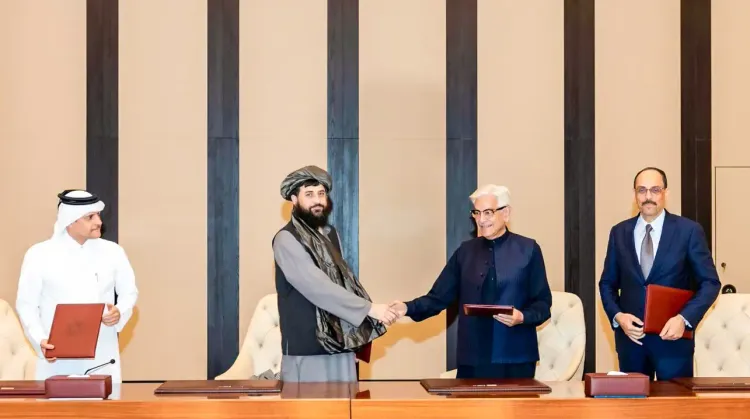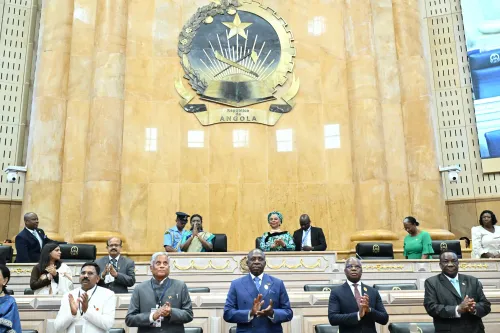What Do Renewed Pakistan-Afghanistan Tensions Mean for South and Central Asia?

Synopsis
Key Takeaways
- Renewed tensions between Pakistan and Afghanistan are a significant concern for regional stability.
- The role of the military establishment in Pakistan influences foreign policy decisions.
- Non-state actors can complicate regional policy and stability.
- The impact of tensions extends beyond bilateral relations to affect Central Asia.
- Cooperative strategies are essential for managing security and economic integration.
Tashkent, Nov 10 (NationPress) The renewed tensions between Pakistan and Afghanistan — characterized by border incidents, halted peace discussions, and escalating security issues — have once again spotlighted the precarious balance of South and Central Asia. These occurrences, frequently viewed as a product of historical rivalries, also highlight Pakistan's ongoing challenge to manage domestic governance issues alongside intricate regional responsibilities, as detailed in a recent report.
"The rising tensions between Pakistan and Afghanistan, which intensified in 2025 amid cross-border confrontations and stalled peace talks, have rekindled worries about regional stability in South and Central Asia. While these developments are often seen as a continuation of deep-rooted regional rivalries, they also reflect fundamental structural challenges within Pakistan’s political and security framework — especially the complicated dynamics between civilian governance and the security apparatus," noted a report from an Uzbekistan-based online publication, Zamin.
Since the late 1970s, Pakistan has held a significant position in Afghanistan's security framework. During the Soviet-Afghan war, Pakistan served as a vital logistical and political ally in international efforts aiding Afghan resistance. However, this involvement has evolved into a broader strategy focused on maintaining regional influence and safeguarding national interests, as stated in the report. Researchers have examined the role of Pakistan’s Inter-Services Intelligence (ISI) and other security entities in Afghanistan’s internal dynamics, showcasing both the influence Pakistan wields and the complications that arise from it.
"Dependence on non-state actors as tools of regional policy has proven intricate and, at times, counterproductive. While these networks initially offered strategic depth and flexibility, they have also contributed to cycles of instability in Afghanistan, intermittently affecting Pakistan’s internal security landscape. Such outcomes have complicated Islamabad’s attempts to balance domestic stability, relationships with Kabul, and international alliances — particularly with the United States and China. A key factor shaping Pakistan’s foreign and security policy is the persistent influence of its military institutions. Analysts observe that in crucial areas of external relations, civilian administrations often operate within limits imposed by the security establishment, which sometimes restricts opportunities for consistent, long-term policy development and diminishes the role of diplomacy in resolving regional conflicts," the report noted.
The cessation of discussions between Pakistan and Afghanistan illustrates these challenges, with mutual concerns surrounding border management, militant activities, and refugee flows. Although both nations have emphasized the necessity for collaboration, sporadic military actions and rhetoric have hindered diplomatic endeavors. The repercussions of tensions between Pakistan and Afghanistan extend beyond their bilateral relationship.
"Ongoing instability along the Afghanistan–Pakistan corridor poses potential threats to Central Asia, a region increasingly linked to South Asia through trade and energy routes. Disruptions along these corridors could obstruct projects such as the Trans-Afghan Railway and CASA-1000, while insecurity may embolden transnational militant factions that jeopardize regional development and governance. Governments in Central Asia — particularly those of Uzbekistan, Tajikistan, and Turkmenistan — are keenly aware of developments along their southern frontiers. Their shared interest in stable connectivity highlights the necessity for cooperative strategies in border security, counter-terrorism, and economic integration," emphasized the Zamin report.









